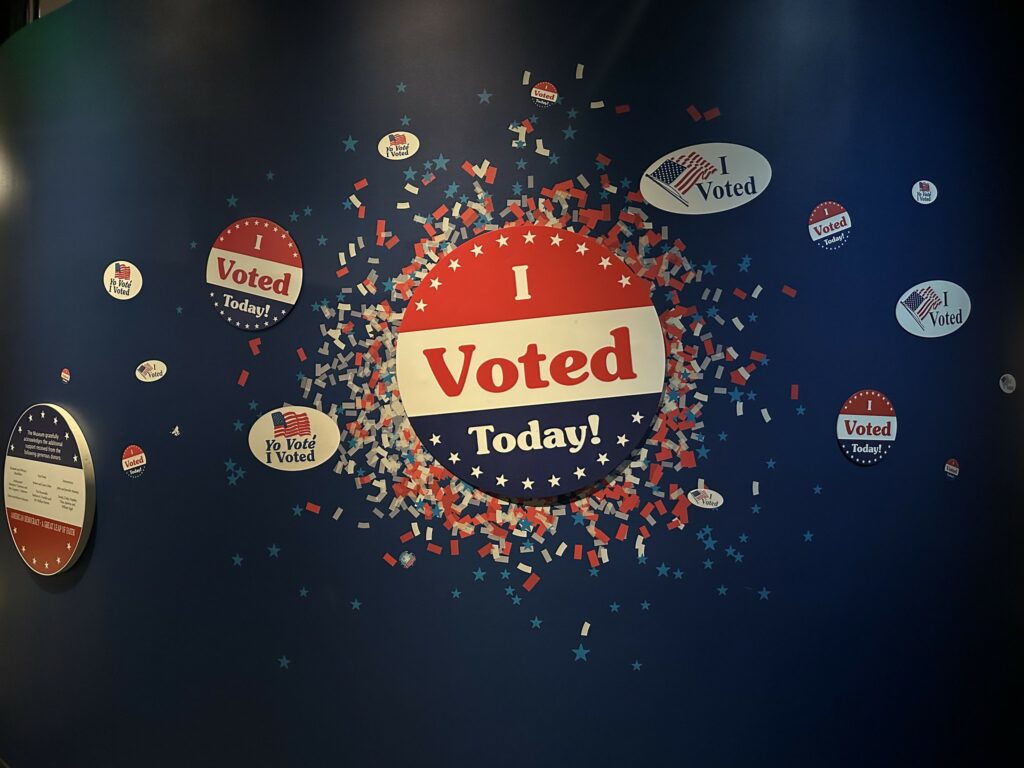Some Additional Thoughts on Primaries and Competition

I have written many times about the ways in which using primaries discourages the formation of viable third parties. My operative hypothesis is that since the cost (in time and treasure) for a new entrant into electoral politics is far lower in trying to win a primary than it is to form a new party, office-seekers gravitate toward trying to win a primary of an existing party instead of gambling on a new party label.
There are a number of factors that create this context and further exacerbate the desire to stick with the established parties. These would include the socio-cultural importance of the two parties, the basic structure of US elections (usually single-seat plurality), and various legal parameters. Still, I think that my theory of cost has a lot of merit and is a major contributor to the individual choices made by politicians, with broader effects on the party system in terms of the number of parties competing.
But could primaries also help explain the anemic performance of one of the two parties in areas where one party dominates? The NYC mayoral contest does raise the question as to why no one of note is running in the GOP primary.
Put another way, why doesn’t the most moderate of the possible Democratic candidates run as a Republican? A similar set of questions could be asked about Republicans in California or Democrats in Alabama. Why don’t more local politicians try to take over the fallow franchises of second parties in these states? Why do the state-level (or, in the case of NYC, the city-level) parties dry up and blow away?
I think that a major reason is the same as I argue for the lack of third parties: the primaries.
If you are a politician who seeks office in a predominantly one-party (R or D) context, what makes more sense for you in terms of costs? Is it to win the primary, and effectively win the office, or is it to gamble on capturing the weaker of the two parties’ labels and then try and win in the general?
Primaries are lower turnout events than general elections, and the electorate tends to be narrower. By definition, it should take relatively less money and effort to just win that election than to have to compete in the general.
This is a thumbnail of a notion.
There are other factors as well.
Our parties, weak as they are, are highly nationalized, and this affects voters’ identity, and in our highly polarized environment, having a D or R by one’s name, regardless of how moderate one might be, can be death in a given context.
Even a moderate who might think there is strategic value in running as an R (which is arguably what Michael Bloomberg did in 2001 and 2005 before switching to “independent” in 2009) will not want to be associated with Trump in the current political environment.
More as I think about this…
I have always been a bit surprised that in one party areas that someone wouldn’t be willing to run as opposition just to establish name recognition. Maybe get a position in the administration if your party wins the national election.
Steve
@steve: That’s a lot of work and cost if the odds are you will lose. And the national parties and donors are unlikely to want to fund a clear loser.
Perhaps included in the “legal parameters” but over the decades since I’ve been following politics, one constant is that both parties have conspired in various ways to prevent third-party competition and cement themselves into the structure of our system. There are a lot of “barriers to entry” for any third party in a similar way that powerful players in an economic market will seek to erect barriers to entry to limit competition.
I don’t think it’s possible, at this point, for one of the parties to die like the Whigs or the Federalists. They are too embedded in the current system. I think the two-party system that the structural incentives create would be more acceptable (not ideal, of course), if parties had real competitive pressures.
@Andy: While I agree that the Rs and Ds have built-in advantages. and that there is work one has to do to form a party, decades of looking at these factors simply make me assess that those barriers, while not nothing, are way down the list of reasons for the structure of our party system.
I do think that major party death is largely impossible because of primaries.
Primaries make the cost of entry for the given office-seeker to be quite low, including people who are dissidents within an existing party or those who would ideologically have cause to otherwise form a third party.
The structures of our party system are indeed the most significant factor in incentivizing a two-party system. However, it’s not for nothing that the two major parties have not relied on that, and have taken substantial and proactive steps to solidify their positions and prevent most competition through various means. They are, at this point, too big to fail, and that’s a problem in my view.